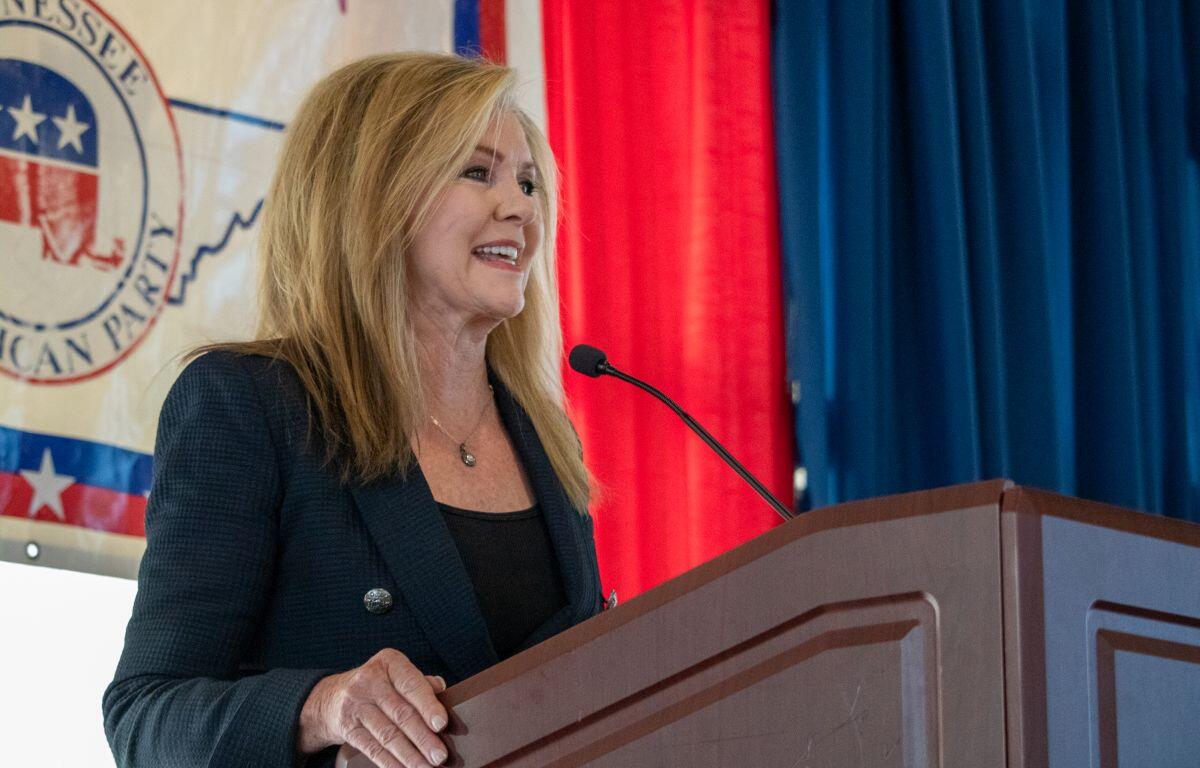FORT CAMPBELL, KY (CLARKSVILLE NOW) – The 2022 National Defense Authorization Act was passed by the U.S. Senate on Wednesday, and two of Clarksville’s national delegates, Sen. Marsha Blackburn, R-Tennessee, and Rep. Mark Green, R-Clarksville, said their efforts paid off in getting funding into the bill that would benefit Fort Campbell soldiers, veterans and their families.
This year’s annual Defense bill included funding for mental health initiatives for the Special Operations community, the continuance of a pilot program that helps spouses transfer their professional licenses from state to state, and transitional programs for service members re-entering civilian life.

Special operations, K2 and helicopters
The National Defense Authorization Act, or NDAA, is an annual bill that funds all defense-related spending, and this year’s dollar amount topped out at $770 billion. It passed the Senate Wednesday after receiving the OK from the House of Representatives earlier this month. The bill is now on its way to President Joe Biden’s desk for final approval.
Blackburn and Green voted in favor of the NDAA’s passage, as did Sen. Bill Hagerty, R-Tennessee.
“Providing our service members the tools they need to protect American national security is one of Congress’ most critical jobs, and I am pleased to support this NDAA that accomplishes that,” Hagerty said. “Not only does this legislation include a pay raise for our men and women in uniform, invest in their families, and strengthen our national defense, but it includes significant investments in the Volunteer State that I strongly advocated for in order to keep Tennessee a leader in protecting our homeland.”
Blackburn told Clarksville Now that included in the NDAA is funding for a mental health initiative called Protection of the Force and Family.
“It is programmatic dollars that will allow greater resources for our men and women in the Special Ops community,” Blackburn said.
Last year, Blackburn and Green helped to include a study in the NDAA on the effects of deployment to K2, an Army base in Uzbekistan that’s been linked to a higher occurrences of cancers and other diseases.
A large portion of servicemembers affected by K2 were members of the Special Operations community, including Green, who served with the 160th Special Operations Aviation Regiment.
Additionally, this year’s NDAA authorized increased funding for CH-47F Block-II Chinook and UH-60 Black Hawk helicopters, and MQ-9 Reapers. These aircraft are pillars for units like the 101st Airborne Division and the 160th SOAR, both of which are headquartered at Fort Campbell.
“My team and I have done a tremendous amount of work in making sure that we had Chinooks for our troops, and that we have that vertical lift that is necessary,” Blackburn said.
Green said he included an amendment that would allow some of the Special Operations units at Fort Campbell to keep one of their subterranean training facilities, as it was previously considered for sale.
“That facility was going on the market, and the people who have it want to sell it. And so what we did at least on the House side was to authorize the Army to purchase that or lease it indefinitely so it wouldn’t go off the market and then those units, to include 5th Special Forces Group and other higher-up level Army counterterrorism organizations, could still train there,” Green said.

Spouse licenses, vaccine mandate discharges
Blackburn told Clarksville Now she’d made the soldier’s family life a special interest area, and because of that, she said a top priority for any Defense spending was improving on-post housing and family service centers.
Another item Blackburn said would help Fort Campbell families is the continuance of a pilot program she started that allows the professional licensure of military spouses to carry over from their previous state and remain valid in Tennessee.
“The spouses are the ones that are keeping the home and everything together while the troop is deployed, and what I would hear repeatedly when I would meet with the troops, and when I would talk with the family service unit, they would say, ‘You know, we moved here and then I had to wait six months or a year in order to have my license approved,'” Blackburn said.
“And I thought, ‘This is fixable.'”
Four years ago, Blackburn went to the Secretary of the Army with the issue. The solution they came up with was the program that expedited the process of transferring state-based licenses for work, such as in healthcare, education or accountancy, from one locality to another.
“It is benefitting with more teachers that are available, more nurses and healthcare professionals that are available, it is allowing these spouses to immediately move into a career,” Blackburn said.
Green said he was able to get an amendment added that banned dishonorable discharges for soldiers who refuse to comply with the DoD’s COVID-19 vaccine mandate.
Despite the Senate adding “general discharge under honorable conditions” to the options for administrative purposes, Green said the servicemembers discharged under either term for refusing the COVID-19 vaccine would still receive full benefits as a veteran.
Green also said he included an amendment that increased funding for Army barracks.
“The milcon (military construction) for barracks was going to be, I think, $150 million, and I put an amendment on that increased that to $500 million,” Green said.
Transitional support
Life for those servicemembers retiring or re-entering civilian life was also a priority, Blackburn said.
“Several years ago, we were active in helping to start this transition program for our troops that are transitioning out of military service, and not only for them, but also for their spouses,” Blackburn said.
This includes the Fort Campbell Strong alliance. The NDAA this year included more funding for those services.
“We have been able to secure additional funding so that you do have those public-private partnerships that are so essential,” Blackburn said. “I will say this, Fort Campbell has been a model for how to handle these transition programs. They were one of the first posts to develop a program, to create these partnerships.”


